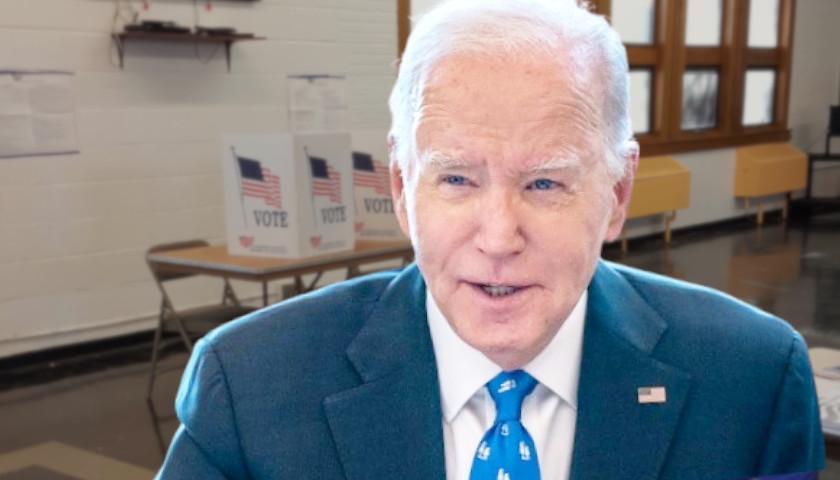by Christian Wade
Connecticut voters may get a chance to decide whether to adopt “no excuse” mail voting with a referendum inching towards the 2024 ballot.
A proposal approved by the state House of Representatives on Tuesday seeks to ease restrictions on the use of “no-excuse” absentee ballots, a move that would allow Connecticut residents to vote by mail in federal, state and local elections.
The Democratic-backed measure passed by a vote of 113-38 that went mostly along party lines, with Republicans mostly voting against it.
The bill’s chief sponsor, state Rep. Matt Blumenthal, D-Stamford (pictured above), co-chairman of the Government Administration & Elections Committee, said he believes “it’s time for all Connecticut voters to decide on whether we’ll expand absentee-ballot access.”
“This resolution would give the voters an opportunity to weigh in on whether we should have no-excuse absentee voting here in the state of Connecticut, and then allow the General Assembly to designate and pass a program of absentee voting that’s more expanded,” Blumenthal said in remarks ahead of the bill’s passage.
Connecticut’s election laws are viewed as among the most restrictive in the nation, which good government groups say restricts access to the ballot box.
Last year, lawmakers approved an update to the state’s absentee ballot law by expanding the definition of illnesses that would allow voters to request an absentee ballot, one of six reasons required under the constitution.
The others allowances to request a new excuse absentee ballot are for active duty military, being out of state during an election, having a disability that prevents them from going to a polling station, or those who have religious objections to voting on Election Day.
More than 123,000 Connecticut voters had cast absentee ballots in the fall elections, setting a post-pandemic record, according to the Office of the Secretary of State.
The proposed amendment must still pass the Senate before it goes to voters in 2024. In 2021, the House and Senate approved a similar absentee ballot voting proposal but are required to hold another vote because the measure didn’t pass by the three-quarters margin needed to put a constitutional amendment on the ballot.
If approved, Connecticut voters would be asked: “Shall the Constitution of the State be amended to permit the General Assembly to allow each voter to vote by absentee ballot?”
A fiscal note attached to the bill by the nonpartisan Office of Financial Analysis said it would cost the state $7,500 to put the question on the ballot, but didn’t examine the cost of mail balloting for the state or local governments. In other states, mail voting has been criticized for shifting too many costs to local election clerks.
At least 35 states and the District of Columbia have authorized some form of no excuse mail-in balloting, which advocates say has increased voter turnout and access.
Connecticut is also wrangling over plans to implement early voting, which was overwhelmingly approved by the state’s voters in the 2022 elections.
Lawmakers are weighing a number of proposals to implement the new law, with plans calling for anywhere from 10 days to two weeks of early voting ahead of state elections.
The House approved a bill on Wednesday that would authorize 14 days of early voting.
But offering voting ahead of the elections will come with a hefty cost to the state and local governments. A report by the state’s Office of Fiscal Analysis determined that the move would cost from $6.9 million to $9.2 million over the next several years, depending on how many days of early voting are offered.
House Republicans have expressed concerns that local governments lack resources to implement early voting, such as technology upgrades and paying poll workers.
– – –
Christian Wade is a contributor to The Center Square.
Photo “Matt Blumenthal” by Matt Blumenthal. Background Photo “Ballot Drop Box” by Paul Sableman. CC BY 2.0.





